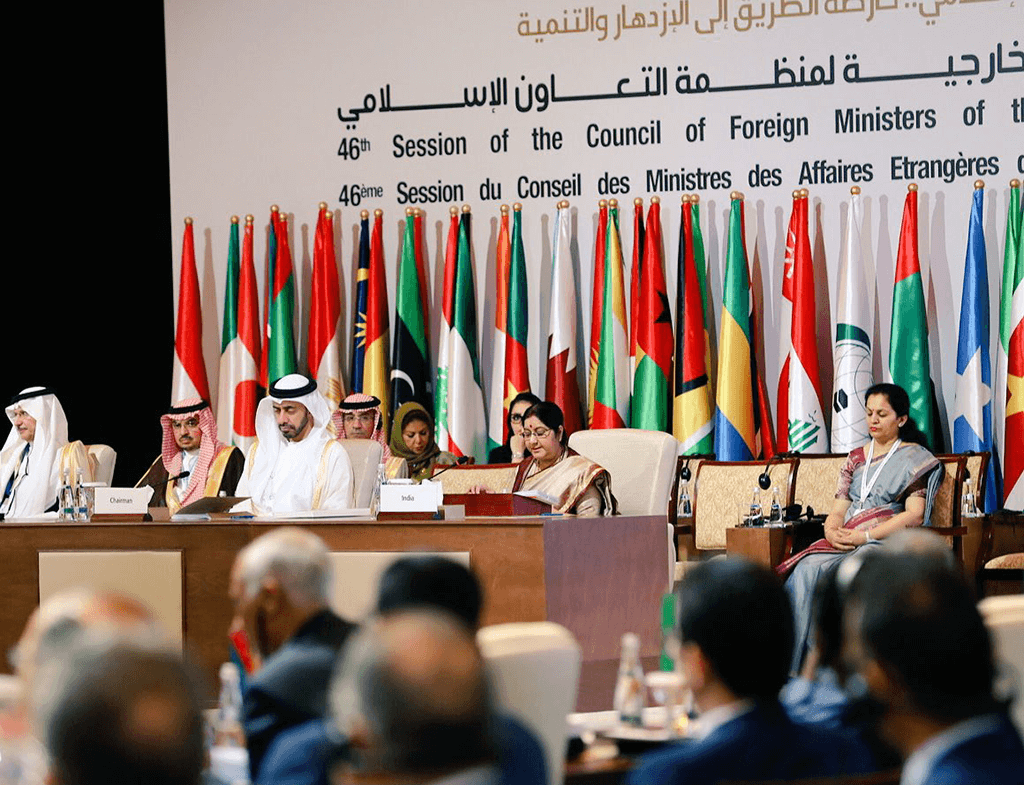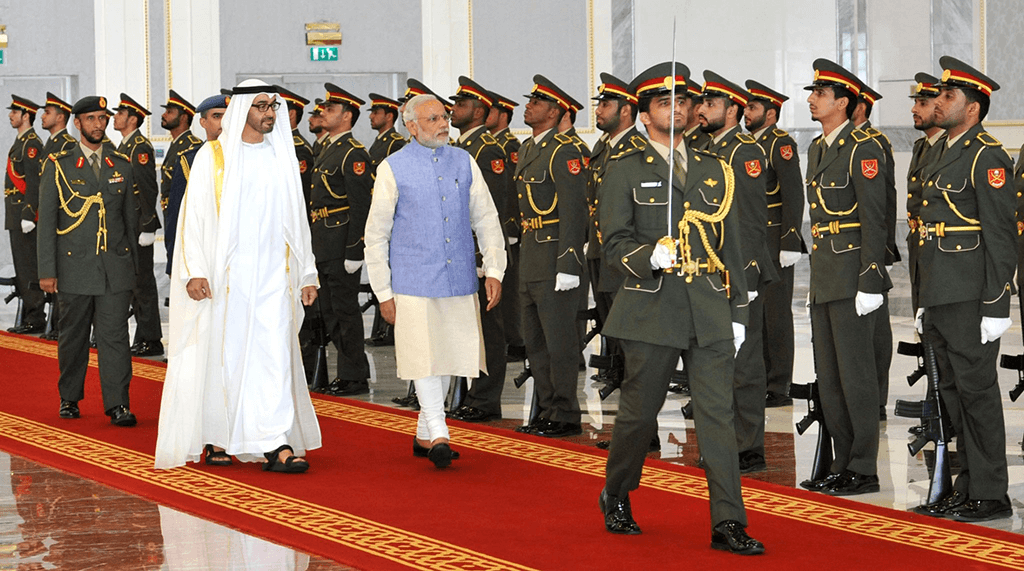When in March 2019, the 46th session of the Council of Foreign Ministers (CFM) of the Organisation of Islamic Cooperation (OIC) was held in Abu Dhabi, the protracted Jammu & Kashmir dispute was kept out of the joint declaration by the host country.
The only mention Pakistan could get in the 50-point declaration was that the OIC welcomes “the positive initiative undertaken by the Prime Minister of Pakistan, H.E. Imran Khan, to hand over the Indian pilot as a gesture of goodwill to de-escalate tensions in the region.” This was a huge diplomatic win for India, which for the first time ever was invited as a guest of honour at Abu Dhabi’s OIC meeting, despite Pakistan’s protests.
However, at the 47th Session of the CFM in Niger, the Niamey Declaration at least reiterated the OIC’s position on the Jammu and Kashmir dispute, calling for “a peaceful settlement in accordance with the relevant UN Security Council resolutions.”
This is a step forward, but it still falls short of Pakistan’s expectations. Why? Because by scrapping the special status of occupied Jammu & Kashmir in the Indian Constitution and taking aggressive steps to change the demographics of this Muslim-majority region, New Delhi has crossed many red lines and lowered the threshold for conflict in the region.
The routine OIC resolution fails to take into account this changed reality of occupied Kashmir, where the level of Indian oppression and brutalities has increased manifold as India attempts to unilaterally “resolve” the matter in its favour bypassing other parties to the conflict — Kashmiris and Pakistan. There is no mention, no condemnation of India’s unilateral move of August 5, 2019 and the steps it has taken since.

Still, the Niamey session cannot be seen as Pakistan’s diplomatic failure, though Islamabad will have to work harder to mobilise international support, including that of Muslim countries, for the Kashmir cause.
Influential Muslim countries, including Saudi Arabia and the UAE, have massive economic stakes in India. And Niger, where the 47th OIC session was held, is also a recipient of Indian investments and funds. Even the venue where the OIC conference was held in Niamey was built with Indian money. According to a former ambassador, Pakistan’s weak economic muscle constrains its diplomatic ambitions.
In the last couple of years or so, Pakistan’s relations with Saudi Arabia and its main ally, the UAE — the driving force behind the OIC — have again turned frosty. Officially it may be hard for the Saudi and Pakistani governments to admit this harsh reality, but there has been a rupture in their ties, which they tried to reenergise after Prime Minister Imran Khan came to power in 2018.
In 2015, the first schism between the two long-time allies was caused by Pakistan’s refusal to be part of the Saudi-led coalition fighting Houthi rebels in Yemen by then Prime Minister Nawaz Sharif’s government. This time around, Prime Minister Imran Khan’s announcement to participate in the Kuala Lumpur Islamic summit of December 2019 ruffled feathers in Riyadh. Although Pakistan pulled out of the summit at the last moment to assuage the concerns of Saudi Arabia, the damage to the relationship was already done.
Unlike past rulers, Prime Minister Imran Khan made little effort to build and cultivate “personal relations” with the Saudi royal family
According to diplomatic sources, the Saudi government was caught by surprise by Prime Minister Imran Khan’s sudden announcement of participation in the Malaysian summit, along with Turkey, Indonesia and Qatar. The move was seen as an attempt to undermine the Saudi-led OIC, which for many leaders of the Muslim world has transformed into a mere debating club, devoid of any meaningful purpose and absolutely impotent when it comes to taking any action on critical issues.
“The Saudi sensibilities were hurt by the manner in which the whole issue was handled,” admits a senior Pakistani diplomat privy to these developments. “For Saudis, Islamabad should have consulted and taken Riyadh into confidence before going public with the announcement of Pakistan’s participation in the Kuala Lumpur summit by none other than Prime Minister Imran Khan himself.”
The diplomatic faux pas occurred only a few months after the Saudi Crown Prince Mohammed Bin Salman’s high-profile Islamabad visit in which he had pledged $20 billion worth of investments in Pakistan.
The senior diplomat said that given Pakistan’s close relations with Saudi Arabia and the fact that Riyadh has always extended financial assistance and support to Islamabad in its moments of crisis, Pakistani policy-makers should have anticipated the reaction. But the Kuala Lumpur initiative was dealt with in an amateurish manner, without giving due thought to the pros and cons of the move. This resulted in estrangement of ties with Saudi Arabia and the UAE, besides creating an embarrassing situation with our Turkish and Malaysian friends.

As if this mishandling was not enough, the investment projects announced by the Saudi Crown Prince also failed to take off. One Pakistani diplomat said that despite some serious efforts by the Saudi Ambassador, there was a complete lack of interest from the concerned ministries and ministers in putting the promised investment projects on fast track. Mohammed Bin Salman, who committed himself to these projects, perhaps felt let down by his Pakistani friends.
However, a former Pakistani ambassador said that the issue has to do with Pakistan’s absorption capacity for any huge foreign investment rather than lethargy or a lack of interest. “Our Chinese friends also have similar grievances when it comes to materialising investment plans and executing projects.”
Unlike past rulers, Prime Minister Imran Khan made little effort to build and cultivate “personal relations” with the Saudi royal family, especially the Crown Prince, or maintain regular contact with Riyadh through its envoy or Pakistan’s own special representative.
“Saudi Arabia is a monarchy. Personal relations count a lot in maintaining and boosting diplomatic and economic ties; unfortunately, the Pakistani leadership lacked focus on this front,” the ambassador remarked.
For Pakistan’s civil and military leadership, reviving relations and building trust with Saudi Arabia should be high on the agenda, though for now that seems easier said than done.
Then the highly irresponsible outburst of Foreign Minister Shah Mahmood Qureshi against the OIC because of its inaction on the Kashmir dispute was also taken as an affront by the Saudis. The result was a rapid deterioration in the relations between the two countries. Pakistan’s top military brass, including Army Chief Qamar Javed Bajwa, tried to iron out the differences but relations are not yet back on the same level, as they once were.
For Pakistan’s civil and military leadership, reviving relations and building trust with Saudi Arabia should be high on the agenda, though for now that seems easier said than done.
However, Saudis, too, cannot sideline Pakistan completely despite their “vicious reaction” to Shah Mahmood’s outburst, as on many key issues Islamabad remains their most dependable ally.
But Prime Minister Imran Khan and Army Chief Qamar Javed Bajwa will have to take a personal interest and make an effort to repair the damaged relations.
Pakistan’s relations with Turkey — which is competing with Saudi Arabia for the leadership of the Muslim World — and other Muslim countries are as important as its relations with Riyadh, but one must not be at the cost of the other. The art of diplomacy requires maintaining a fine balance even between rivals. But there is one significant lesson to be learnt from this unpleasant chapter in Pak-Arab relations: Pakistan and its policymakers must realise that for achieving political and diplomatic independence and sovereignty, reviving the economy and putting our own house in order should be the top priority. Even our Muslim brother countries do not judge us by our good intent and love for them, but by our economic and military clout. We have to make both these punches work simultaneously, to secure better deals for Pakistan and aggressively fight and win Kashmir’s case.



